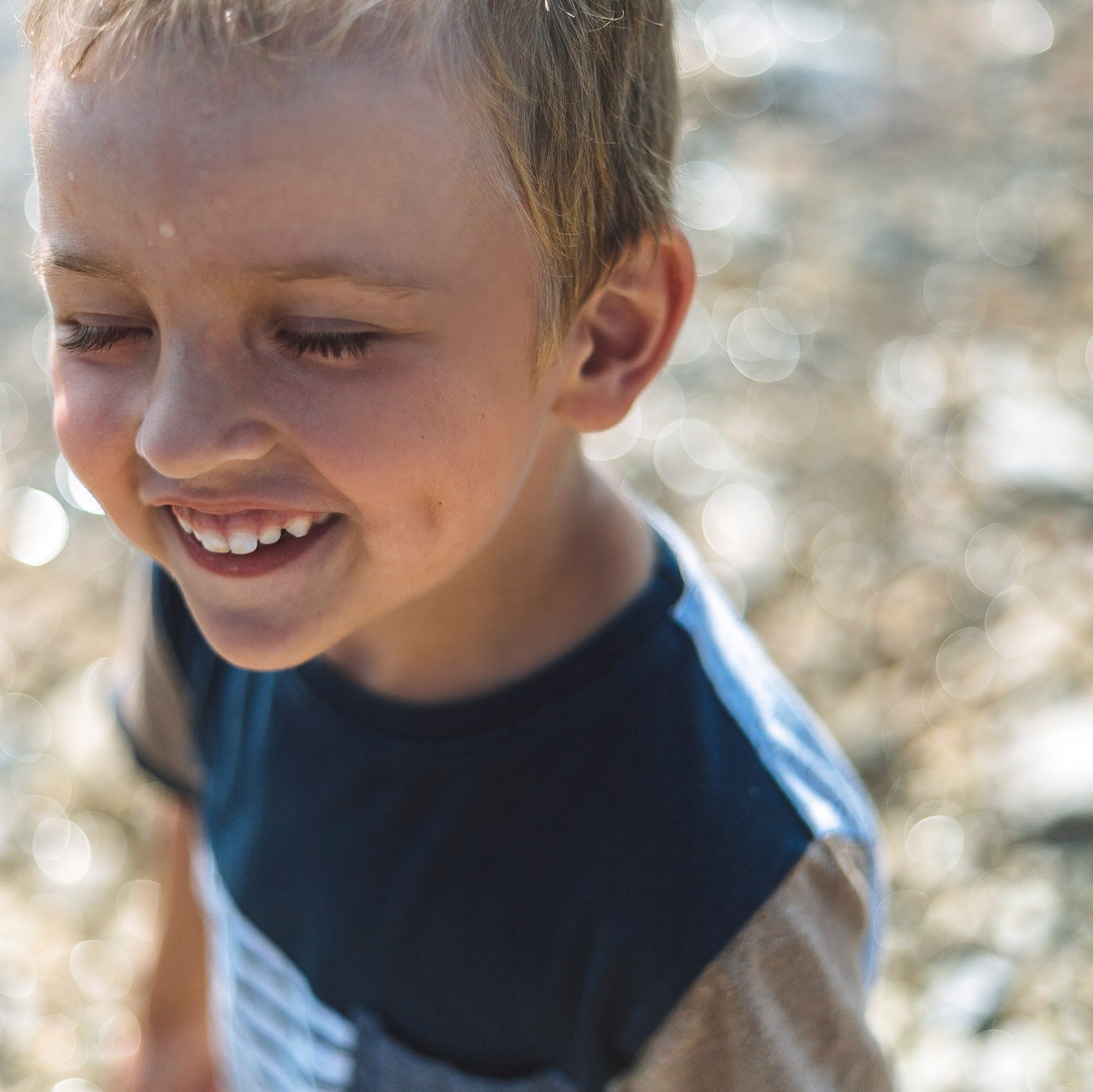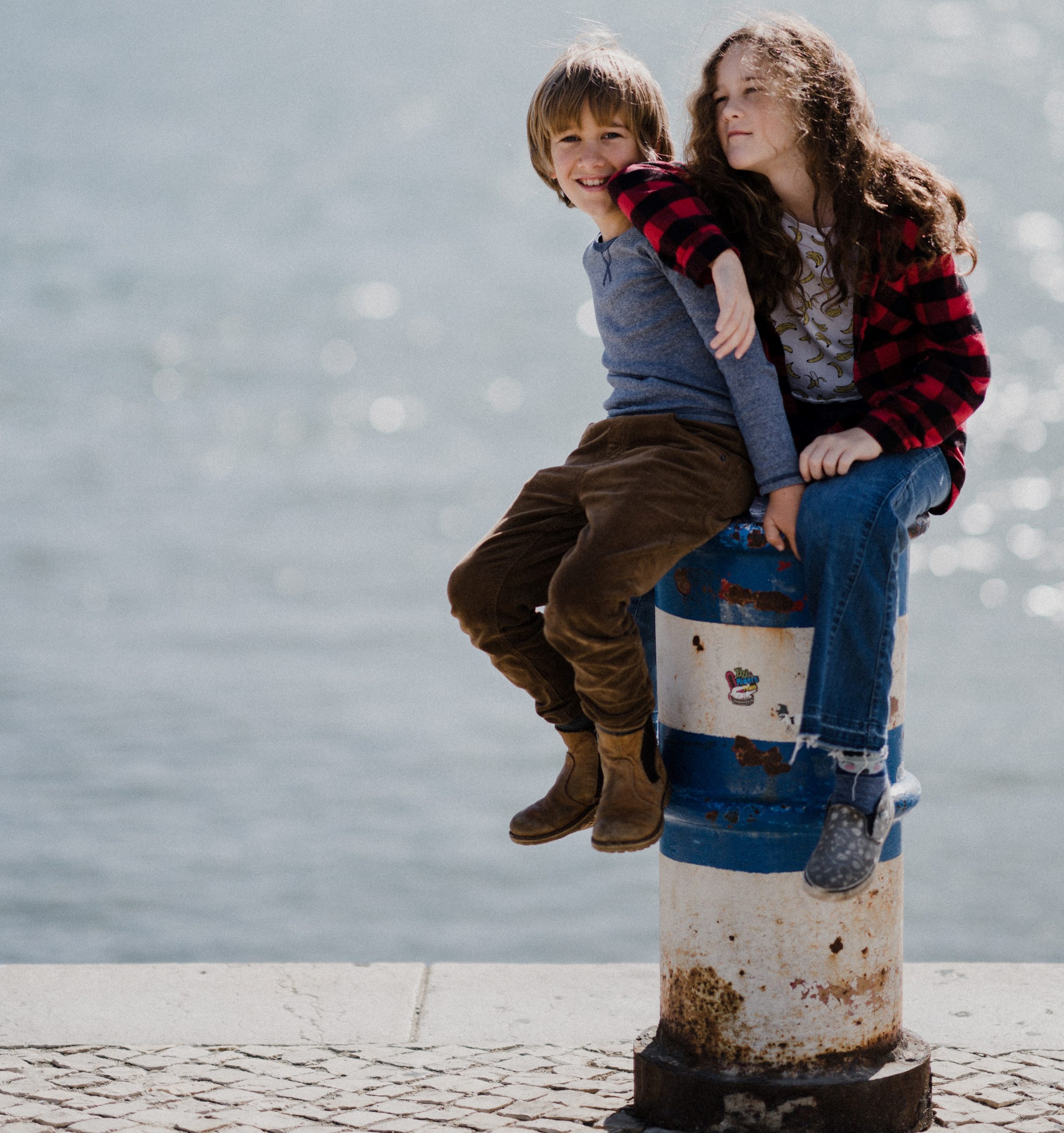Therapy for Children & Teens
By Peaceful Waters therapists specialize in supporting the mental, emotional and social health of children and teens. Our team offers evidenced-based therapeutic approaches that suit your child’s age and stage of development in a way that is safe and engaging. We serve children and teens in Kitchener-Waterloo and throughout Ontario with in-person and online appointments.

How Therapy Helps Children & Teens
Whatever their age and stage, children and teens face many challenges that impact how they feel, behave and learn. Therapy supports the mental health of children and teens by providing the time, space and insight they need to process any challenge and learn to thrive.
Children and teens ‘learn by doing’ in therapy, just as in all other areas of their lives. So during a session, they can engage with art, games, play, music, and mindfulness. These activities allow kids to practice new skills and build helpful thinking patterns and healthy behaviour.
A therapist provides professional support and expertise for your child or teen to identify and name feelings and emotions, process difficult or traumatic experiences, develop resilience and self-confidence, set boundaries and apply interpersonal skills, and learn coping strategies to deal with stress.

Common Concerns for Children & Teens:
- Attachment disorders
- ADHD, ADD, ODD, FASD
- Bullying
- Anxiety & depression
- Separation or divorce
- Sexual, physical or Emotional abuse
- Grief & loss
- School struggles
- Eating disorders
- Body-image
- Self-esteem & identity
- Suicidal thoughts
- Self-harm & cutting
- Addiction or family substance abuse
- A parent with mental health issues
Join Emoticon - An Emotional Regulation Group for Kids
Are BIG emotions overwhelming your child and leading to meltdowns? The good news is that emotional regulation skills can be learned with practice.
Our Emoticon group meets in Waterloo, Ontario, where your child can join with others to learn about 7 core emotions. Led by a Registered Psychotherapist, your child will discover practical tools to name and process their feelings in healthy ways.
What Happens in Therapy for Kids?
As a parent, you may wonder what happens in therapy for your child, or about your role during the therapeutic process.
The therapist provides a safe, supportive relationship so that your child or teen can create new possibilities, develop a greater sense of self and discover their strengths to build on.
If your child is younger, you are encouraged to meet with your child’s therapist to provide family history, strengths and challenges, stressors, and priorities for treatment. You can also check in on your child’s progress and get feedback about how to build on what is happening in therapy at home.
When appropriate and helpful, an older child or teen may involve his/her parents or other family members in therapy.
Information that is shared between the therapist and child is kept confidential, unless there are details of abuse, risk of abuse, harm to themselves or others, or the court has become involved.

Parent Guilt is Real. Therapy is Not a Sign of Failure
Parents often confide in us that if their child or teen goes to therapy, they feel like somehow they have ‘failed’ as a parent. We want to take a moment to address this concern because parent guilt is real, and it can weigh heavily on caregivers.
It is important to remember that therapy gives your child a healthy place to work through challenges, and grow in their social and emotional intelligence. When your child can process trauma, loss or difficult experiences, they are gaining awareness about themselves and others, which is important for becoming an empathetic person. They can experience emotional healing that will help them live more confidently, with resilience and joy. And that is what every parents wants, right?
By bringing your kid to therapy, you are sending the message that their emotions, mental health and relationships are important. Although therapy can sometimes mean tackling difficult issues, you are providing your child or teen with an opportunity for growth that will serve them for years to come.
FAQs about Therapy for Children & Teens
How do I support my child who is receiving therapy?
You can support you child by helping to take care of their practical needs like making sure they are not overtired or hungry before a session. If they are meeting in-person, do your best to provide a peaceful ride to and from the appointment. If the appointment is online, provide a quiet and private space.
If your child begins to share with you what they have talked about in therapy, practice listening with compassion and without judgement.
What kinds of therapy are good for teens and children?
Our therapists use attachment-based and trauma-informed therapies. They use techniques from play therapy, art therapy and sandplay in order to engage kids’ senses and access their creative and expressive side, while managing emotional regulation. In addition, they draw on techniques and principles from evidenced-based approaches such as Emotionally and Compassion-focused therapies, Narrative, Mindfulness, and CBT.
Is my child too young for therapy?
Therapy for children uses creative techniques such as play, art, music and sandplay. These expressive therapies engage the creative (right) side of the brain, which is not dependant on language for processing. This means that children as young as 2 or 3 years old can benefit from therapy.
If you are a parent or caregiver of an infant who is under 2 years old and who has undergone a traumatic experience or abuse, our therapists can work with you and your child through attachment-based therapy to provide the security and support your child needs at this time.
What if my child doesn't want to go to therapy?
Never pressure your child to come to therapy. However, you can talk to your child or teen about any concerns or fears they have. For example, some children have questions about what it will be like or about the privacy of what they share. By answering their questions and speaking to their fears, you can help to remove these barriers for your child.
If your child will not attend therapy but you as a parent need assistance, our therapists or Parenting Coach can provide practical tools and support for you in your role and relationship to your child.
Therapy & Counselling Services
Individual Therapy
We hold space for you to address and process the issues concerning you. Experience hope, healing and peace in a healthy, professional and confidential relationship.
Couples Therapy
Learn to attune to one another, communicate, and set healthy boundaries while working through the situations you are facing as a couple. Learn more in our FAQ section.
Family Therapy
We work with you and members of your family to strengthen your relationships by fostering attachment-based connections and healthy communication.
Children & Teens
We specialize in supporting children in their mental, emotional and social health in a way that is safe and engaging – meeting your child right where they are at.
Young Adults
We provide a non-judgemental space to help you discover your identity, learn how to handle stress and set direction for your future. Heal yourself and your relationships.
Art Therapy
Discover art therapy as an excellent choice to creatively express your internal emotions and process your experiences through colour and medium. No art expereince required!
Music Therapy
Tune in to your inner world through the creative space of music therapy. Explore the use sounds, lyrics and rhythm with your therapist to express your feelings and experiences. No musical training required.
Groups
We host groups for DBT Skills, Emotional Regulation, Parenting Workshops and more. Our facilitators create a safe learning environment and offer professional, practical and relatable support.
Prayer Counselling
Experience a form of counselling where you can engage your faith and spirituality as you address trauma, generational patterns, addictions, and emotional woundedness.
